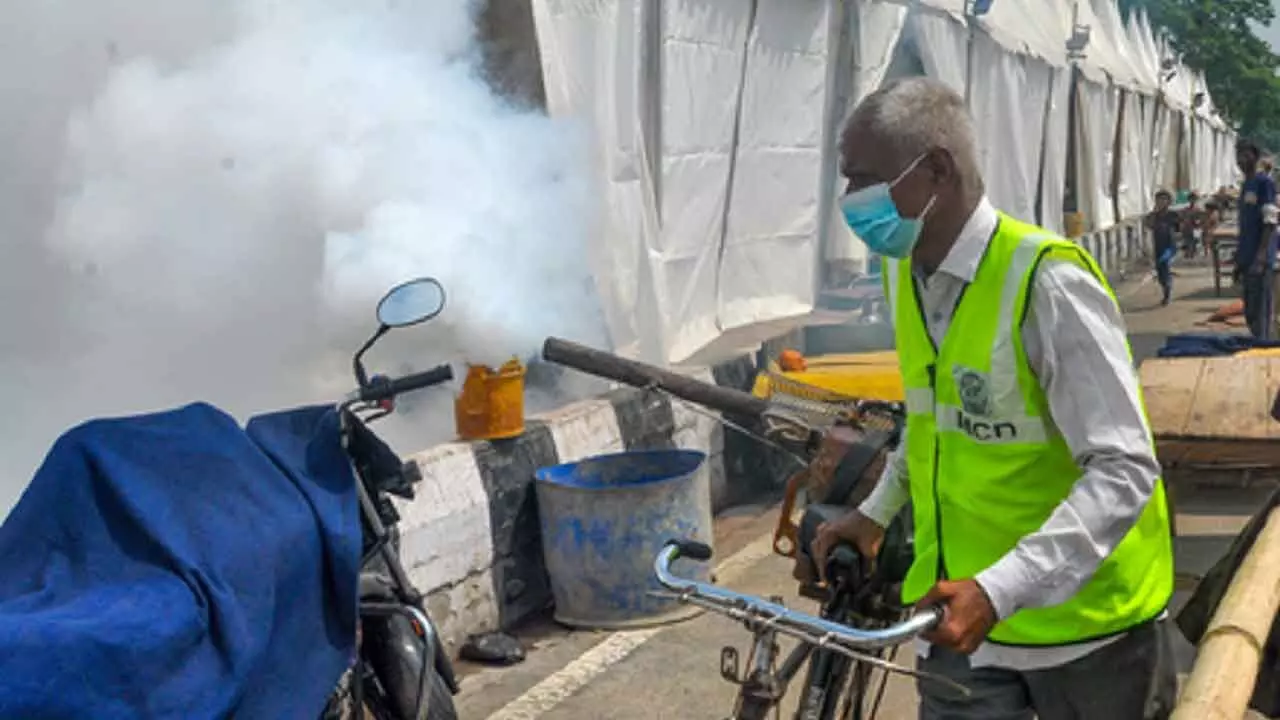Warming climate can shoot up dengue cases across Asia, Americas: Study
Says even small shifts in temperature can have a big impact on dengue transmission, and we're already seeing the fingerprint of climate warming
Warming climate can shoot up dengue cases across Asia, Americas: Study

An increasing rise in global temperatures is set to drive cases of dengue by as much as 76 per cent across a large number of countries in Asia and the Americas by 2050, according to a new study.
The research, by a team of scientists from the universities of Washington, Stanford, and the US National Bureau of Economic Research, provides the first direct evidence that a warming climate has already increased the disease's toll.
"The effects of temperature were much larger than I expected," said lead author Marissa Childs, Assistant Professor of environmental health at the University of Washington.
"Even small shifts in temperature can have a big impact on dengue transmission, and we're already seeing the fingerprint of climate warming," she added.
The study analysed over 1.4 million observations of local dengue incidence across 21 countries in Central and South America and Southeast and South Asia, capturing both epidemic spikes and background levels of infection.
Dengue thrives in a "Goldilocks zone" of temperatures -- incidence peaks at about 27.8 degrees Celsius (82 degrees Fahrenheit), rising sharply as cooler regions warm but dropping slightly when already-hot areas exceed the optimal range.
As a result, some of the largest increases are projected for cooler, high-population regions in countries such as Mexico, Peru, and Brazil.
Many other endemic regions will continue to experience larger, warming-fuelled dengue burdens.

